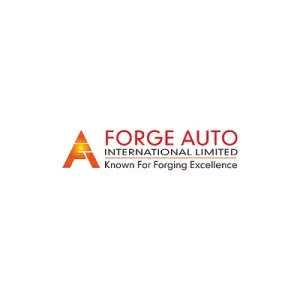Schedule of Forge Auto International
| Issue open date | 26 Sep 2024 |
| Issue close date | 30 Sep 2024 |
| UPI mandate deadline | 30 Sep 2024 (5 PM) |
| Allotment finalization | 01 Oct 2024 |
| Refund initiation | 03 Oct 2024 |
| Share credit | 03 Oct 2024 |
| Listing date | 04 Oct 2024 |
| Mandate end date | 15 Oct 2024 |
| Lock-in end date for anchor investors (50%) | 30 Oct 2024 |
| Lock-in end date for anchor investors (remaining) | 29 Dec 2024 |
Note: The schedule is tentative. The anchor lock-in period ends 30 days after the actual allotment date for 50% of the shares and 90 days after for the remaining portion. The allotment status can be checked on the registrar's website and the exchange website.
About Forge Auto International
Forge Auto International, founded in 2001, is a reliable manufacturer, Original Equipment Manufacturer (OEM) supplier, and exporter of drop-forged and machined components based in Ludhiana. The company supplies to well-known OEMs such as Sonalika, TAFE, Mahindra & Mahindra, CNH, Tata, Ashok Leyland, Isuzu, and Daimler in India, operating as a Tier 1 and Tier 2 supplier. In addition to serving the Indian market, Forge Auto International exports to countries like Poland, Germany, Denmark, Turkey, Brazil, and other European nations. The company is focused on growing its business by building partnerships with respected organizations.
Financials of Forge Auto International
Issue size
| Funds Raised in the IPO | Amount |
| Overall | ₹31.10 crores |
| Fresh Issue | ₹31.10 crores |
| Offer for sale | – |
Utilisation of proceeds
| Purpose | INR crores (%) |
| Working capital requirements | 19 (61.09%) |
| Debt reduction | 5 (16.08%) |
| General corporate purposes | 7.1 (22.83%) |
Strengths
- Forge Auto International operates almost debt-free, with a cash conversion cycle of zero days.
- The company prioritizes sustainability, utilizing renewable energy, bio-lubricants, recycled materials, and energy-efficient production practices.
- It holds multiple certifications for quality, environmental management, and occupational health and safety.
- Advanced technology, such as CAD/CAM systems, 3D printing, and forging simulation software, is integrated into its manufacturing
Risks
- Volatility in raw material prices, such as carbon and alloy steel, can affect profitability.
- The auto parts industry is highly competitive, with significant pressure from imports.
- The industry is closely tied to the cyclical nature of the domestic automobile market.
- Risks related to international trade can also pose challenges for companies.
